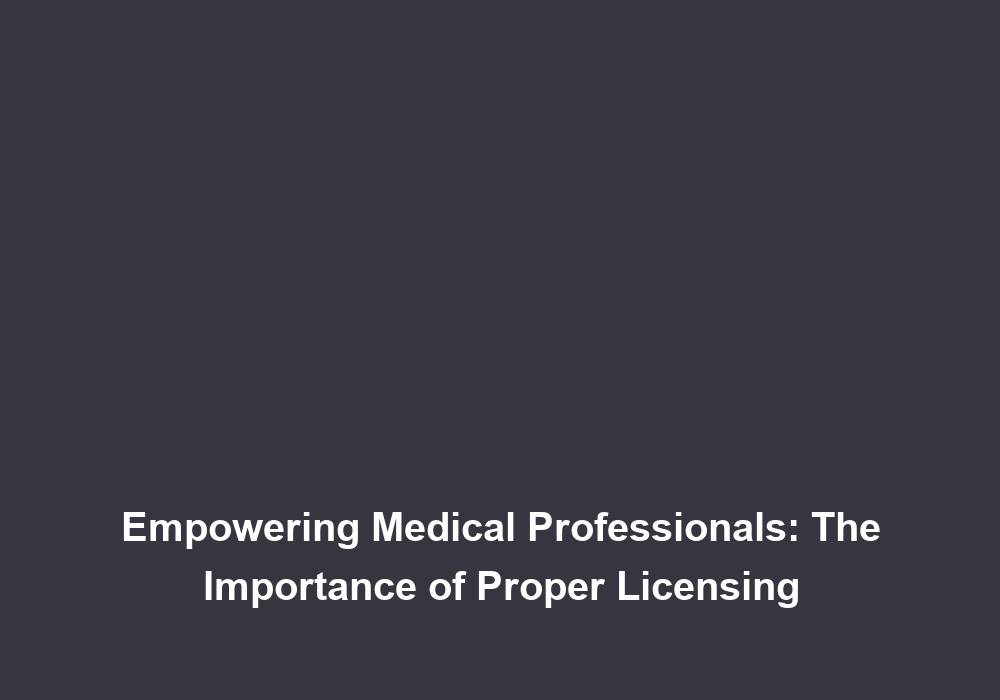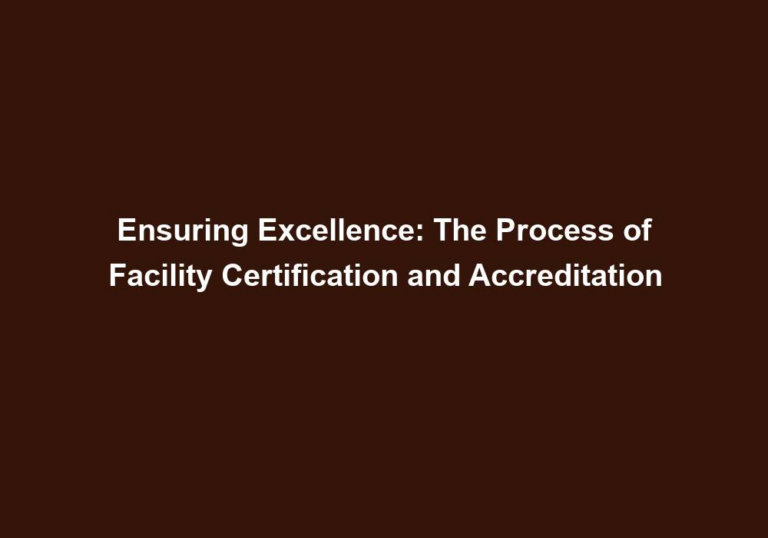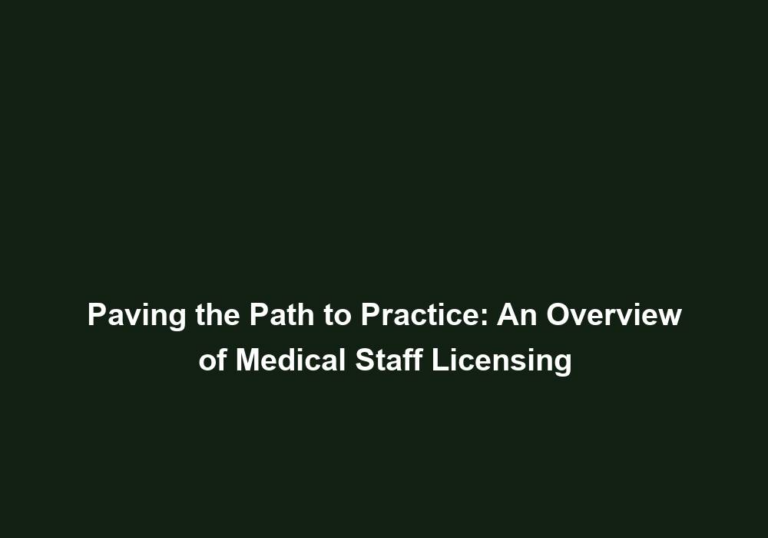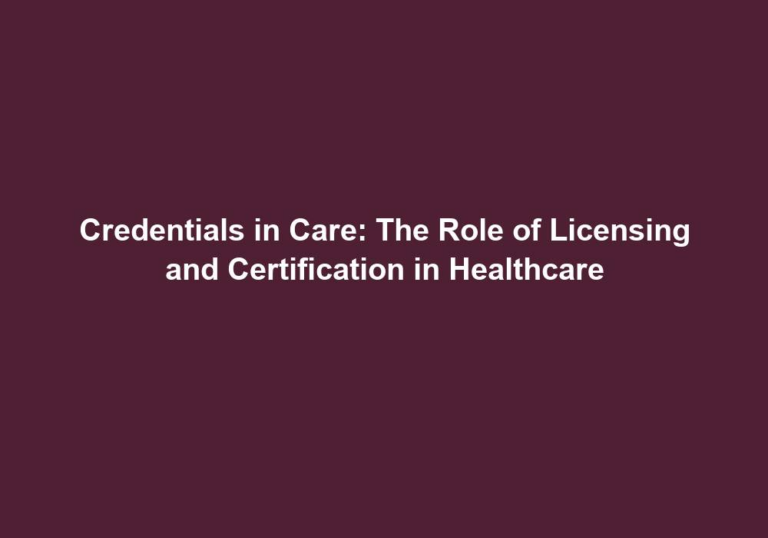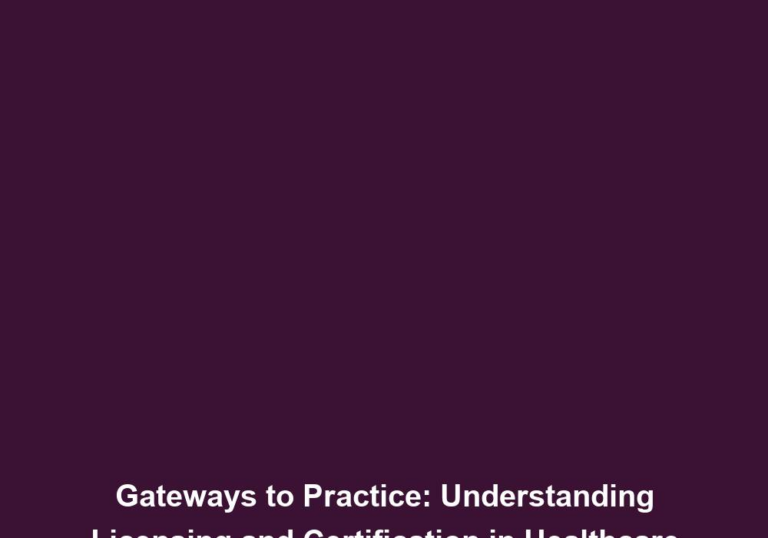Empowering Medical Professionals: The Importance of Proper Licensing
In the field of healthcare, it is crucial for medical professionals to possess the appropriate licenses. Proper licensing not only serves as a legal requirement, but it also plays a vital role in empowering medical professionals and ensuring the delivery of quality care to patients. This article will delve into the importance of proper licensing for medical professionals, highlighting its significance in the healthcare industry.
1. Legal Compliance and Patient Safety
One of the primary reasons for requiring medical professionals to obtain proper licenses is to ensure legal compliance. Each country or region has its own set of regulations and licensing requirements that healthcare providers must meet. These regulations are in place to protect the public and maintain the highest standards of patient safety.
Obtaining a license demonstrates that medical professionals have met the necessary educational, training, and competency standards set by regulatory bodies. It serves as proof that they have the knowledge and skills required to provide safe and effective care to patients.
In addition, proper licensing helps in standardizing the healthcare system by ensuring that all medical professionals adhere to the same set of guidelines and protocols. This uniformity in practice promotes consistency in the quality of care provided, reducing the risk of errors and improving patient safety.
Moreover, licenses are not permanent and require renewal at regular intervals. This renewal process often involves the completion of continuing education courses and the demonstration of ongoing competence. By regularly updating their knowledge and skills, licensed medical professionals stay up-to-date with emerging medical advancements and best practices, ultimately benefiting the patients they serve.
2. Professional Credibility and Trust
Proper licensing also enhances the professional credibility of medical professionals. When patients seek medical care, they want to be treated by individuals who are qualified and trustworthy. A valid license assures patients that the healthcare provider has met the necessary standards and possesses the required expertise.
Medical professionals who are properly licensed are more likely to gain the trust and confidence of their patients. This trust is crucial for establishing a positive patient-provider relationship, which in turn leads to better patient outcomes and satisfaction.
Furthermore, a valid license demonstrates that the medical professional has undergone rigorous training and education to acquire the necessary knowledge and skills. This dedication to professional development and commitment to meet the licensing requirements further solidify their credibility in the eyes of patients.
3. Career Advancement and Opportunities
Proper licensing opens up numerous career advancement opportunities for medical professionals. With a valid license, healthcare providers can pursue specialized fields of practice, such as cardiology, dermatology, or pediatrics. These specializations not only allow medical professionals to focus on their areas of interest but also provide them with the chance to become experts in their chosen field.
Moreover, proper licensing enables medical professionals to work in different healthcare settings, such as hospitals, clinics, research institutions, or even start their own private practices. Having the flexibility to explore various career paths enhances professional growth and allows medical professionals to make a significant impact on the healthcare industry.
Additionally, some healthcare organizations and institutions require medical professionals to hold specific licenses or certifications for certain positions or roles. By obtaining the necessary licenses, medical professionals increase their eligibility for these coveted positions, which often come with higher salaries and greater responsibilities.
4. Protection against Malpractice Claims
Proper licensing acts as a shield against malpractice claims that medical professionals may face during their careers. In cases where patient harm or dissatisfaction arises, having a valid license demonstrates that the healthcare provider has met the necessary standards of care.
Licensing boards often have mechanisms in place to investigate complaints and take appropriate disciplinary action if required. By adhering to licensing requirements and regulations, medical professionals can protect themselves from unnecessary legal complications and reputational damage.
Additionally, the process of obtaining a license involves a thorough review of the medical professional’s background, credentials, and history. This scrutiny not only ensures that only qualified individuals enter the healthcare profession but also helps in identifying any red flags or previous disciplinary actions. This screening process further enhances patient safety and provides an added layer of protection against potential malpractice.
5. Continuous Professional Development
Obtaining and maintaining a license requires medical professionals to engage in continuous professional development (CPD). CPD involves activities such as attending conferences, workshops, and completing educational courses to stay up-to-date with the latest advancements in their field.
By participating in CPD, medical professionals enhance their knowledge and skills, ensuring that they remain competent in delivering quality care. This commitment to lifelong learning not only benefits the individual but also contributes to the overall advancement of the healthcare profession.
Furthermore, CPD helps medical professionals stay abreast of changing regulations, guidelines, and best practices in their respective fields. This knowledge allows them to adapt their practices and incorporate evidence-based approaches, ultimately improving patient outcomes and promoting a culture of continuous improvement within the healthcare industry.
Conclusion
In conclusion, proper licensing is of utmost importance for medical professionals. It ensures legal compliance, enhances professional credibility, and establishes trust with patients. Licensing also opens up various career opportunities and protects against malpractice claims. Furthermore, it encourages continuous professional development, allowing medical professionals to stay abreast of advancements in their field.
By recognizing the significance of proper licensing and adhering to the necessary requirements, medical professionals can empower themselves, provide quality care, and contribute to the overall improvement of the healthcare industry.

